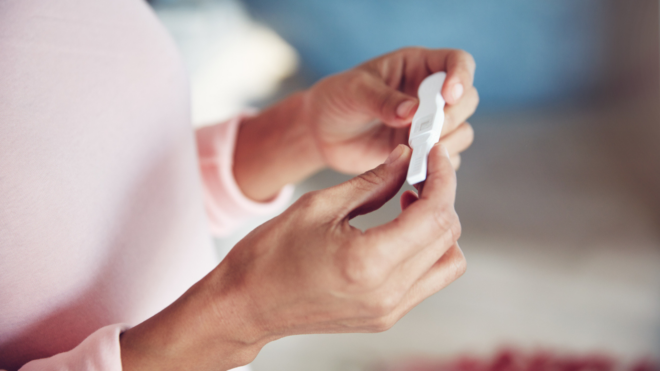While birth control receives top billing when it comes to benefits of the pill, what women might have missed are the added advantages that the tablet boasts as well. In addition to contraception and period relief, the pill also tames acne and lowers your risk of certain cancers, no matter your age.
"Lots of women are happy with the pill in their 20s and 30s, and they can continue to enjoy the benefits into their 40s if they're otherwise healthy," says Dr. Erica Banks, director of gynecology at the Albert Einstein College of Medicine and Montefiore Medical Center in New York.
The pill can help with the symptoms of PMS, including fatigue, mood swings, anxiety, headache, acne, bloating and constipation.
Keep in mind, though, that there can be side effects for the pill and warnings for women with certain health issues. Check out the benefits as well as the precautions here:
BENEFITS:
Easier periods
"You have decreased menstrual blood loss, so you have lighter periods," Banks notes. "You also can have less cramping."
PMS relief
The pill can help with the symptoms of PMS, including fatigue, mood swings, anxiety, headache, acne, bloating and constipation, she points out.
Cycle control
It also allows you to skip your period when you want. "You don't need to get it every month," Banks says. It is perfectly safe to skip periods by not taking the week of placebo pills in every pack of oral contraceptives and starting a new pack instead.
Help with acne and migraines
The pill can help with other hormone-sensitive conditions. "It can decrease acne, which can be related to hormone fluctuations," Banks says. "Some people get menstrual migraines, and some will improve on the pill. And it can be a medical treatment for endometriosis."
Ease perimenopause
"It can control perimenopausal symptoms, such as skipping periods, or [if] you're having hot flashes but your periods haven't ended yet," she adds.
Birth control, of course
Not to mention that it's a great form of contraception, which is just as important for women in their 40s as for younger women. Unless you have officially entered menopause, i.e., you haven't had a period for at least a year, you still need to use contraception, even if you've had infertility problems in the past. "And the pill is an excellent option for reversible long-term contraception," Banks says.
Lowering your risk of cancer
Finally, the pill can decrease your risk of several types of cancer, she notes. According to a National Cancer Institute report summarizing the results of numerous studies, taking oral contraceptives for at least a year reduced endometrial (uterine) cancer risk by approximately 40 percent.
A 2011 study published in the British Journal of Cancer found that women who took the pill for 10 years nearly halved their risk of developing ovarian cancer; even women who took it for only a year or less lowered their risk by 15 percent.
And a 2009 analysis of previous studies in Human Reproduction Update confirmed that women who took oral contraceptives reduced their risk of colorectal cancer by approximately 20 percent.
PRECAUTIONS:
Side effects
There are two basic types of birth control: combination pills, which have both estrogen and progestin; and a progestin-only option for women who have problems with blood clots or who cannot take pills with estrogen.
In addition to possible side effects such as headaches, breast tenderness and nausea, both types of pills can also cause missed periods and irregular bleeding, according to the American College of Obstetricians and Gynecologists.
Combination pills also increase the risk of certain conditions, such as blood clots in the legs, gallbladder disease and liver tumors, while the ACOG says that progestin-only pills have common side effects, including weight gain, anxiety or depression and excessive hair growth.
Who shouldn't take the pill?
The pill is not the best choice for every woman, says Banks. If you're using another birth control method that is working for you, you can stick with it. And women with certain health issues generally should not take the pill, including smokers, women with cardiac disease and obese women.
RELATED: Nutrients You Might Be Missing
Smokers. "You should not take the pill if you're a smoker, but especially if you smoke more than a pack of day," she says. Taking the pill increases smokers' risk of cardiovascular disease, especially if they're over 35.
Women with cardiac disease. Women with cardiovascular problems, including high blood pressure, arteriosclerois and other clotting disorders, should generally not be on the pill. A study in MedLink Neurology by researchers at Loyola University Health System found that taking birth control pills nearly doubled the user's risk of stroke, though this figure isn't as dire as it sounds: That's only one additional stroke for every 25,000 women who take oral contraceptives. Banks says that if you have well-controlled high blood pressure, you may be able to consider using hormonal contraceptives if you are carefully monitored by your doctor.
Obese women. "The pill would not be the first choice for someone who is obese," she says. Being on the pill and being overweight both increase your risk of clotting problems.
So if you're looking for an effective, convenient form of birth control with a lot of side benefits, ask your doctor if you're a good candidate for the pill—even if you're over 40.
RELATED: Time for a Beauty Reality Check




